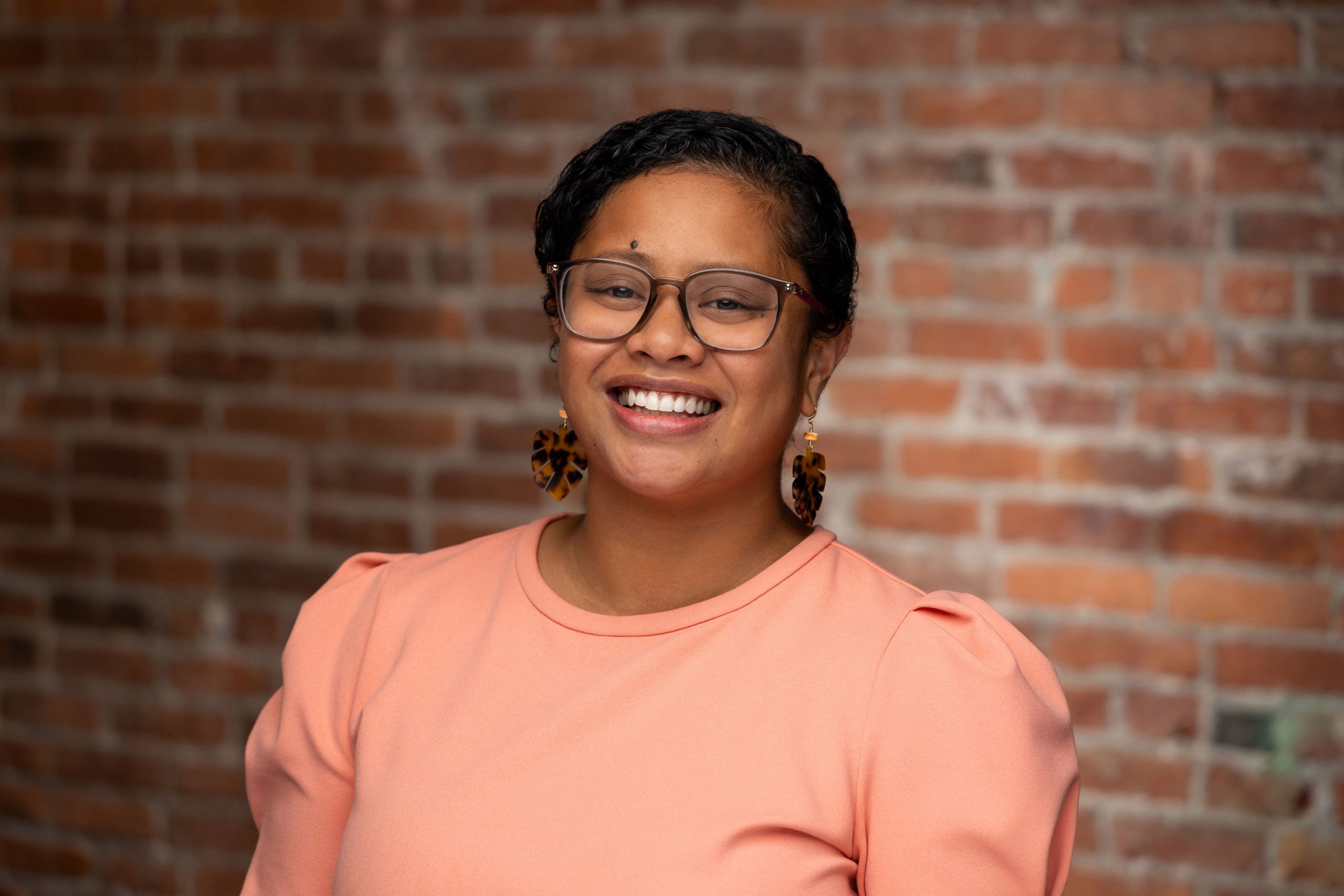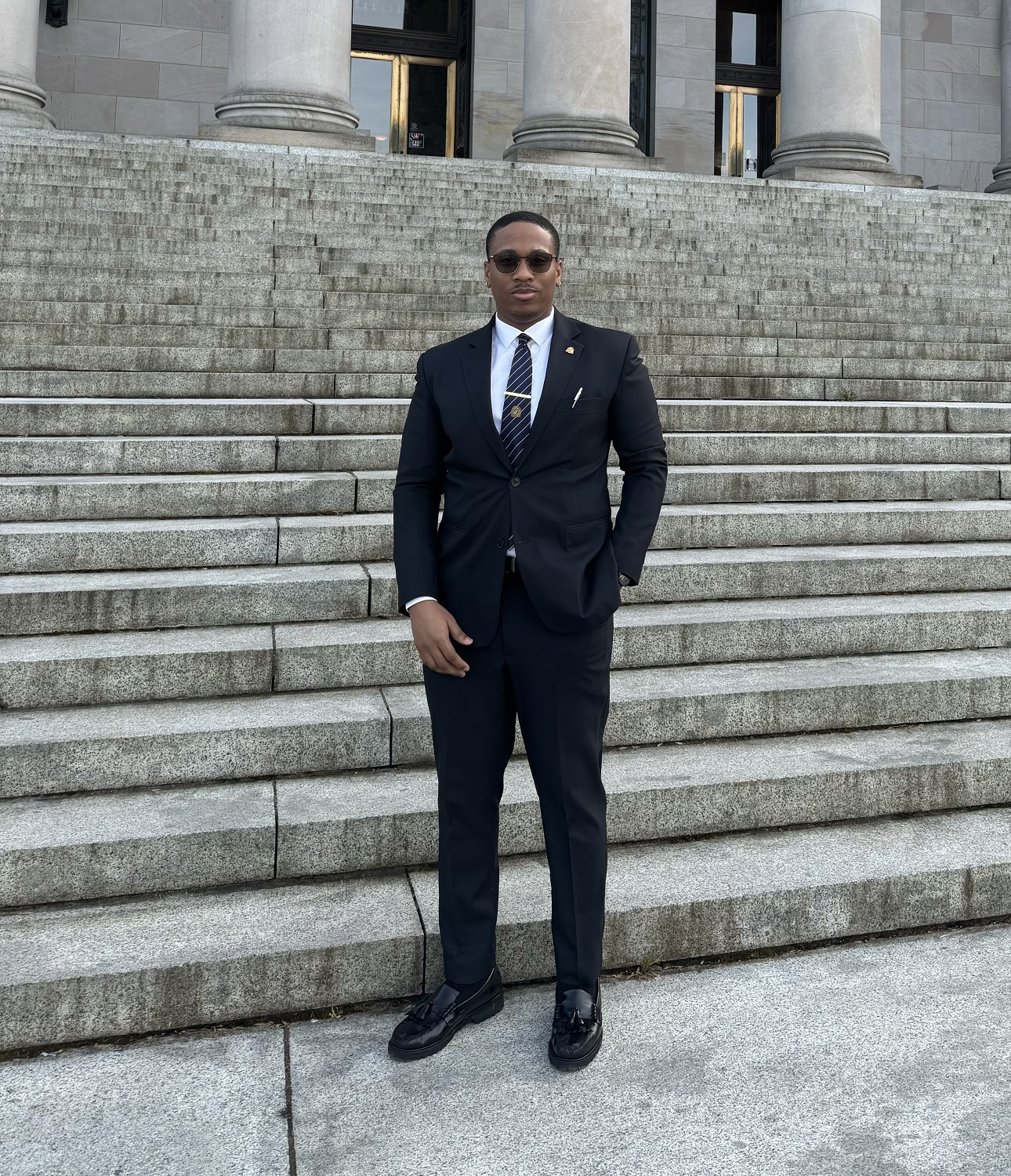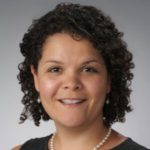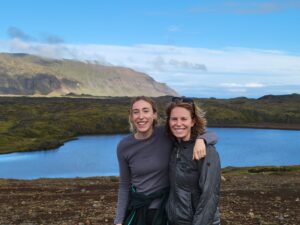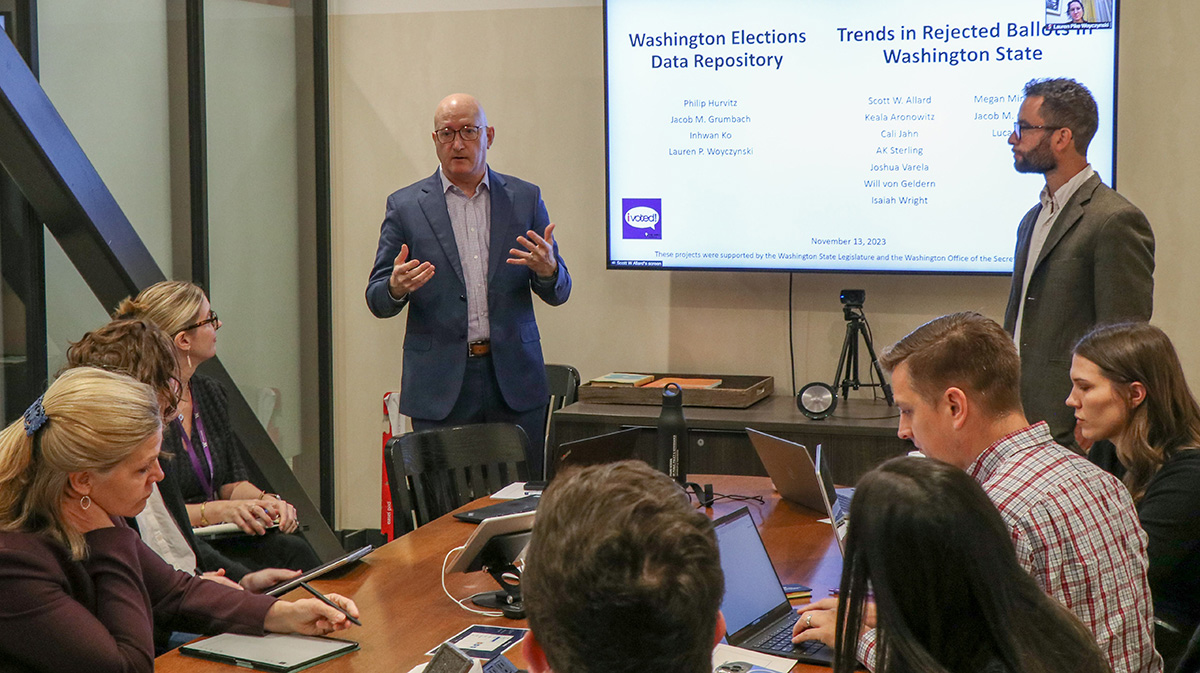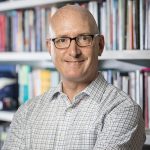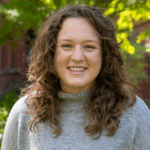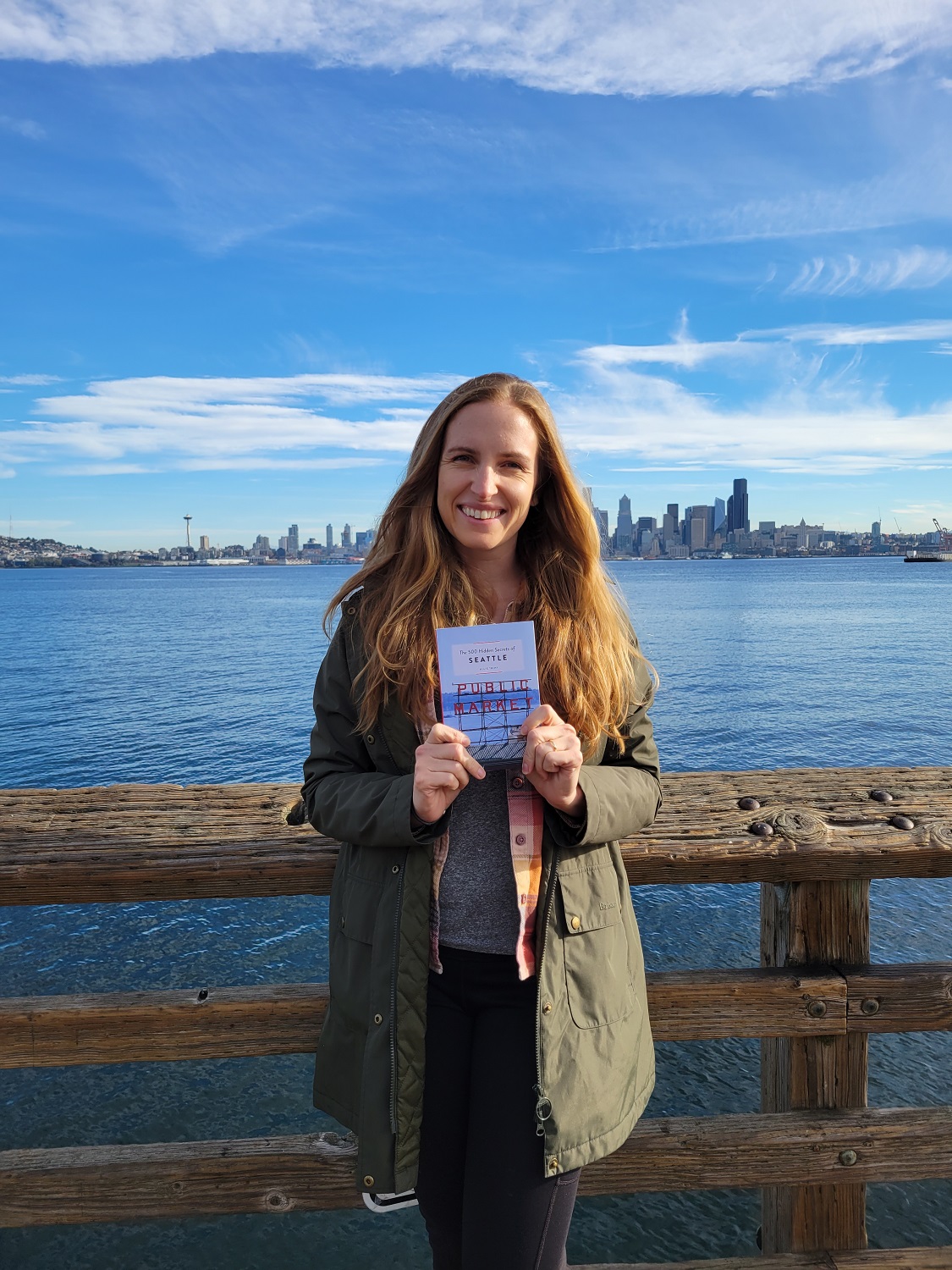What inspired each of you to choose the Evans School, and how did you decide it was the right place for your graduate education?
Maddie: Seattle is the place that I wanted to be long-term, so I only actually applied to Evans. Audrey and I are from Redmond, and it’s important to us to be around family- I knew that going to a graduate program in the place I wanted to settle long term was going to be the best option professionally and personally. Evans has a wide Alumni network, and I wanted to make new friends! I moved back to Seattle and started Evans in 2020 during the pandemic, and I feel like it was the reason I found a job that I’m passionate about and a community of friends who share similar values.
Audrey: Maddie was a huge influence on my decision to come to Evans. I was torn between staying on the East Coast for a health policy-focused program or coming back to Seattle to be near family and start building my community here. I remember Maddie took me to meet Scott Allard, who shares similar policy interests with me, like social policy and food security. I was struck by how warm the interaction was, and walking around the building felt so welcoming. I realized that I wanted to be in Seattle long-term, and having the alumni network and strong professor connections was really important to me.
Maddie, what was your experience like as an MPA student, and what advice do you have for Audrey as she navigates her own journey at Evans?
Maddie: My experience was quite different from Audrey’s because I went during COVID. The majority of my MPA program was remote learning, which, honestly, changed the experience. The professors did their best, and leadership had to make a lot of tough decisions about whether we could come back in person. But even though it was challenging, it bonded our class in a special way. I remember studying on my front porch with my friend Liz, bundled up in 30-degree weather with gloves and hot chocolate while studying for econ—it was certainly a different experience.
My advice to Audrey is to take advantage of all the job opportunities, even short-term ones, that come your way. I was able to work three different jobs in the winter quarter because the program was remote. I worked for the Milgard Women’s Initiative, did data analysis for North Seattle Community College, and working with Stephen Page and fellow Evans students for the City of Sultan on their downtown revitalization project. Working for-the City of Sultan and completing my capstone with Team Read, solidified that I want to continue supporting the public and nonprofit sector through consulting. I’ve worked for BERK Consulting for two years now, and I love that on such a wide range of projects.
Audrey, how does it feel to follow in your sister’s footsteps at Evans? Has her experience shaped or influenced your own?
Audrey: On one hand, it feels like I’m following my sister around in this world, but the cool thing is that we have very different interests and strengths. Maddie is great at managing people and community engagement, whereas I enjoy working more with numbers and data. So even though we’re in the same program, we’ll probably have very different concentrations. But so far, I’ve found it really helpful having Maddie there. She’s helped me navigate classes she liked and connected me with professors. She’s good at taking advantage of opportunities, and I sometimes need a little ‘big sister’ reminder to be proactive and make the most out of my time here.
Are there any shared values or passions that led both of you to pursue public service and policy?
Maddie: We were both really influenced by our mom, who was the main breadwinner in our family and worked for Microsoft Philanthropy for many years. She showed us that it’s possible to pursue a career aligned with your values and passion. Growing up with that example made us realize that we can both make a difference while doing something we care deeply about. I got my start at a nonprofit focused on getting young people active in democracy and social justice. That’s where I discovered my passion for registering people to vote and talking about the importance of politics at the local level. After a couple of years, I realized I wanted to have more of an impact at the policy level, so I came to Evans.
Audrey: We share a desire to use our unique skills and privileges for the common good. Growing up in the Jewish community, the value of helping others and the community was ingrained in us from a young age. I think that’s what drives both of us to pursue public service and policy—we want to make a tangible difference in people’s lives.
Looking ahead, how do you see the impact of your Evans education shaping your professional goals and shared commitment to making a difference?
Maddie: What’s great about Evans is the flexibility—it doesn’t matter where you end up, as long as you make use of the professors, job opportunities, and connections. It can be a challenge to decide your path because Evans prepares you for so many different roles, but if you leverage the community, the sky’s the limit.
Audrey: The classes and professors I’ve met so far have already challenged my narrow view of what I thought I wanted to do. I came in focused on health policy and data analysis, but after taking Sharon Kioko’s financial management course, I’m starting to realize how important it is to understand how money moves through organizations. It’s pushing me to expand my skills and see how they apply in the real world. I have no idea where I’ll end up after my two years here, but I know I’ll have transferable skills that will help me in any field. And the alumni network is a huge asset for my future.
Maddie: Exactly, Audrey! Like you said, it’s the transferable skills that matter. At BERK, I’ve worked on such a wide variety of projects—from the Pike Place Market Master Plan to a Senior Needs Assessment for the Anacortes Senior Activity Center. It’s not about being an expert in everything but about using your problem-solving skills and communication abilities to tackle challenges. I got to hone those skills at Evans and use them every day in consulting.
Anything else you two want to add?
Maddie & Audrey: Go Dawgs!

